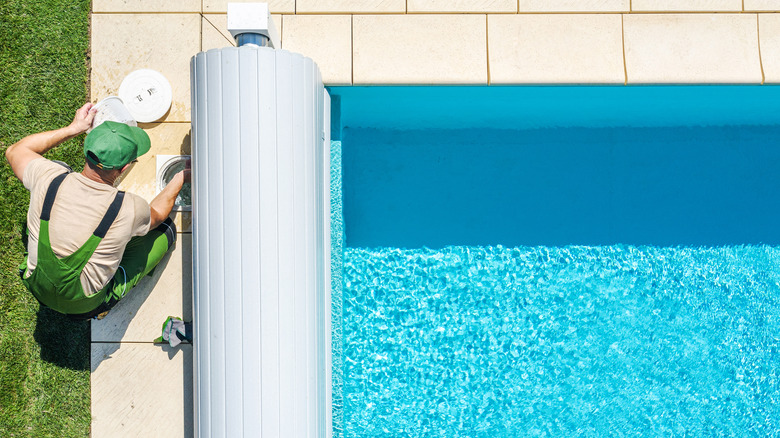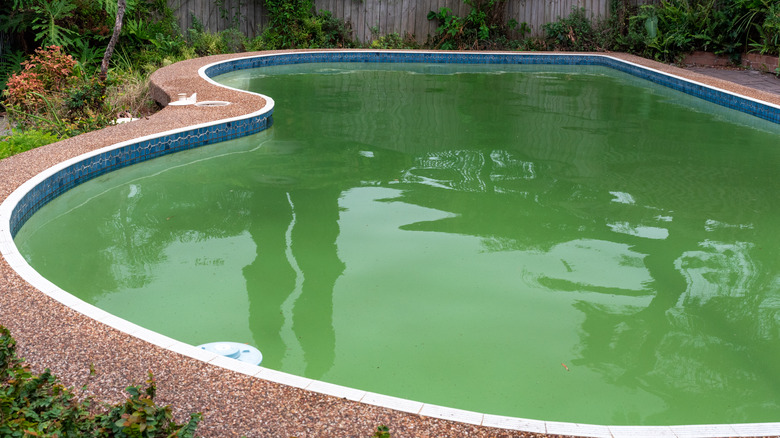Will The Delta Variant Cause Another Chlorine Shortage In 2021?
There are few things that scream "summer" like a backyard swimming pool filled with crystal blue water, and thanks to a combination of shelter-in-place orders, public pool closures, as well as transmission and social distancing concerns linked to the coronavirus pandemic, an estimated 96,000 new swimming pools were built across the United States in 2020. That figure might represent a 23% increase from 2019, but even more pool constructions were scheduled this year, after builders ballparked that 110,000 new pools were expected to be built in 2021 (via The New York Times).
While we might be tempted to look at the latest pool construction data and draw our own conclusions over why there is a chlorine shortage in the country today, the reality has less to do with pandemic-related hoarding, and more to do with demand, supply, and a natural disaster that took down a chemical plant in Louisiana last August. That disaster was Hurricane Laura, and the plant it took down was BioLab, which produces most of the chlorine tablets used across the country. Unfortunately for many pool owners, Yahoo! reports that the plant isn't expected to reopen until 2022, leaving many pools without the chlorine necessary to keep their waters sparkling clean and germ-free.
There are other reasons for the chlorine shortage
This is not to say that there is no chlorine to be found anywhere in the U.S. Stocks of the chemical can still be found, but pool owners (of whom there are many more) have had to pay much higher prices. As Yahoo! points out, while a 50-lb. bucket of chlorine tablets used to cost between $75 to $85 each, the same buckets are now going for anywhere from $158 to $171.
Unlike items like toilet paper or hand sanitizers, whose scarcity today can be linked to the surge in the Delta variant, the problems plaguing chlorine are of a different nature, even if its outcome remains the same: not enough of one thing to go around. Swimming pool consultant Rudy Stankowitz, who describes the current shortage as "poolocalypse," tells The New York Times that "There is a very, very good possibility that we're going to run out of chlorine tablets. People should start looking into alternative methods of sanitizing swimming pools."
These methods include having swimmers shower before getting in the water, keeping pets out of the pool, and using a modified chemical cocktail that can help kill bacteria and algae bloom. And while it might be tempting to hoard chlorine supplies, Stankowitz says that would be a bad idea. "If people start to hoard and people start to take in more supplies than they need, that's only going to make the problem grow worse," he said.

